Since April 2019, hiring at Apple (NASDAQ:AAPL) increased by 22% in what is the steepest hiring spree we've seen the company go on since 2018. The hiring uptick appears to be focused on engineering and design as the company looks to create everything from next-generation iPhones to rumored cars and augmented reality devices.
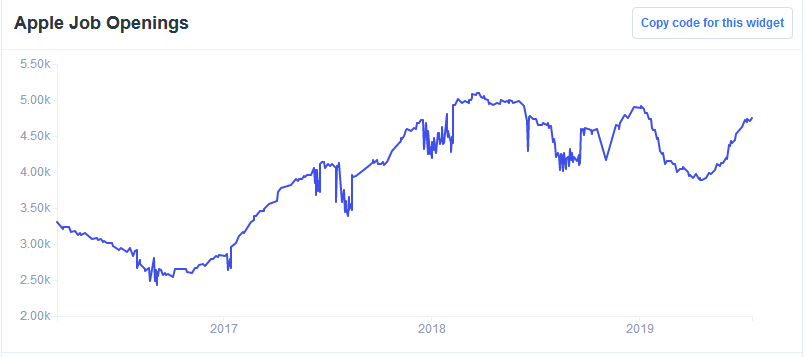
Hiring in Munich, for instance, more than doubled in the past year. The Munich facility is an Apple chip-design center where it's developing the next cellular chips and wireless technology for use in everything from phones to desktop computers, as well as future top-secret device as part of Apple's R&D efforts.
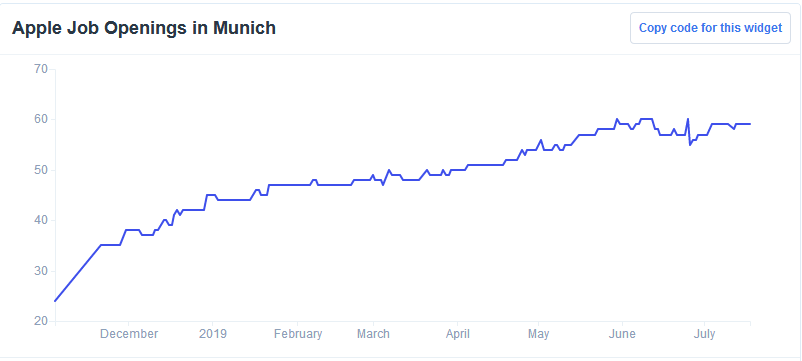
The most recent job openings in Munich include design managers as well as cellular security architect, among others.

But as Apple fires up hiring for the future of its product outlay, it's cutting back on jobs in China, many of which are related to manufacturing, supply chain, and product support call centers. This cutback on jobs in China mirrors that of other large tech companies, including Amazon (NASDAQ:AMZN), which are anticipating heavy tariffs that could undermine the net benefits of off-shoring logistics and supply chain.
In Shanghai, job openings at Apple plummeted by nearly half since the end of 2018. In November, Apple Shanghai listed 208 openings; today, it lists just 110. That's a decrease of 47% in just over a half-year. The beginning of that drop off coincides with when President Donald Trump referred to himself as "Tariff Man" while threatening tariffs on Chinese imports if President Xi Jinping failed to make good on a new trade deal.
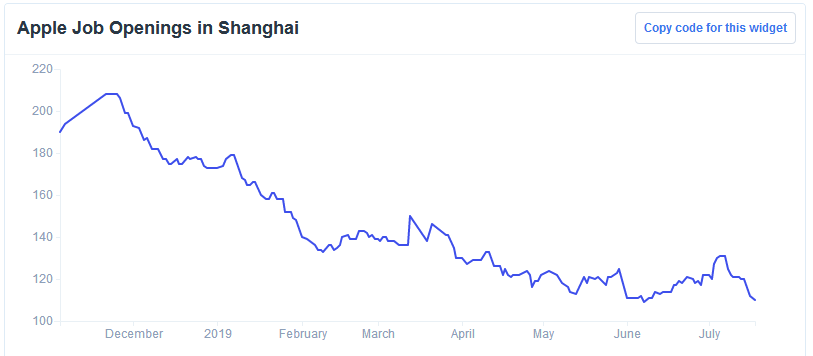
In Nanshan, where Apple was hiring for as many as 34 professionals who operate in critical supply chain roles, hiring has dropped to just a handful of openings. Roles there included machine engineers and product painters who would prep Apple products for packaging and shipping. The final remaining jobs there included:
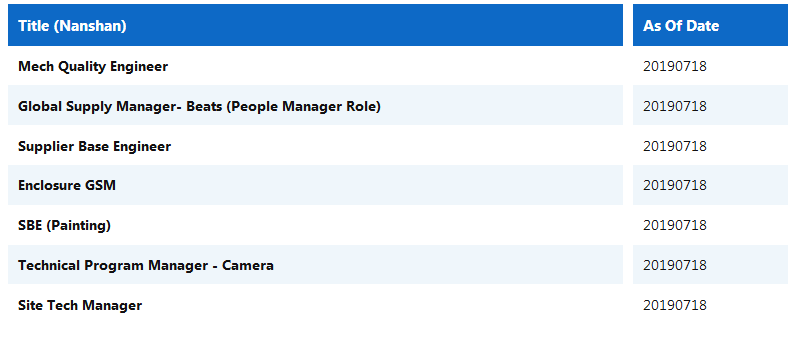
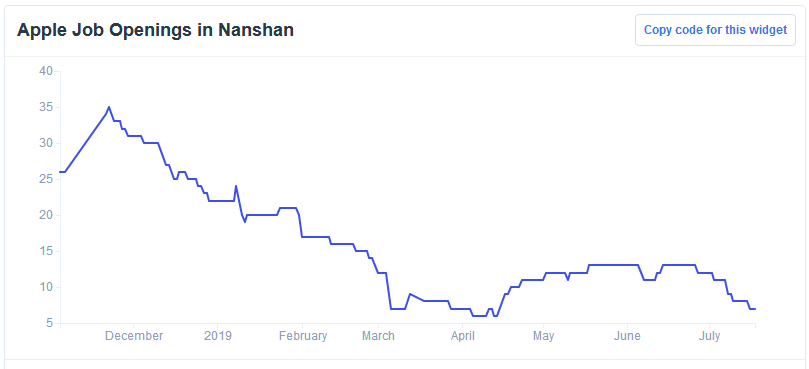
There is some silver lining in China for Apple. Hiring for more desk-oriented and engineering jobs has been steady, at least somewhat. In Chengdu, where Apple operates a customer support team and call centers, hiring has been on the rise since the new year, albeit for only 17 positions.
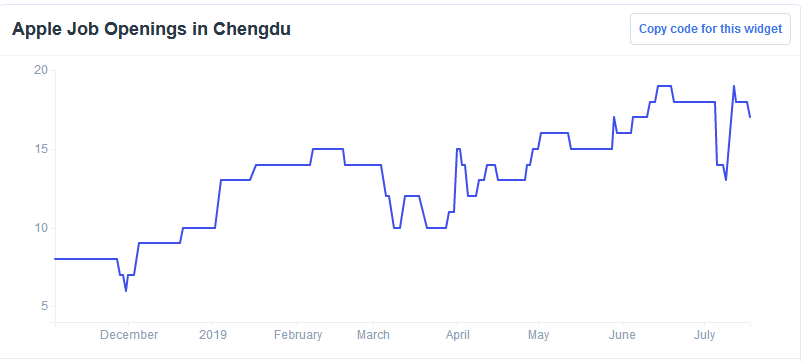
As of this month, Shanghai remains the third-most common location for Apple job openings, behind only Apple's headquarters and Austin, Texas.
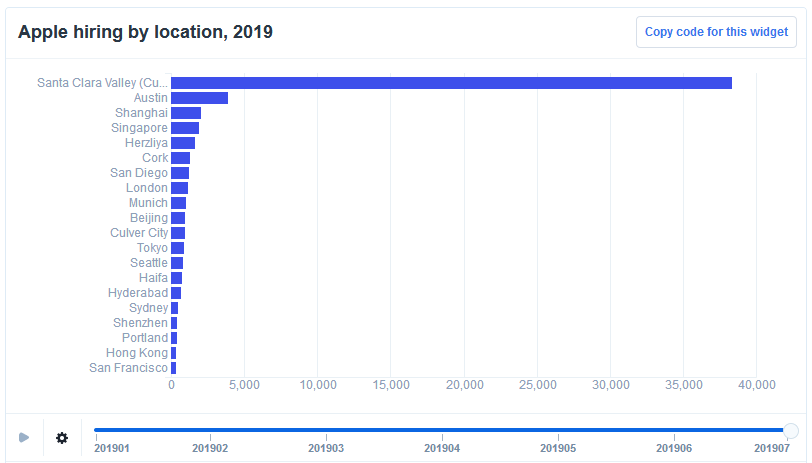
However, if the current trends hold, and the tariff wars continue, we'll likely see further reductions in China as Apple looks to move supply chain and customer service elsewhere.
About the Data:
Thinknum tracks companies using information they post online - jobs, social and web traffic, product sales and app ratings - and creates data sets that measure factors like hiring, revenue and foot traffic. Data sets may not be fully comprehensive (they only account for what is available on the web), but they can be used to gauge performance factors like staffing and sales.
